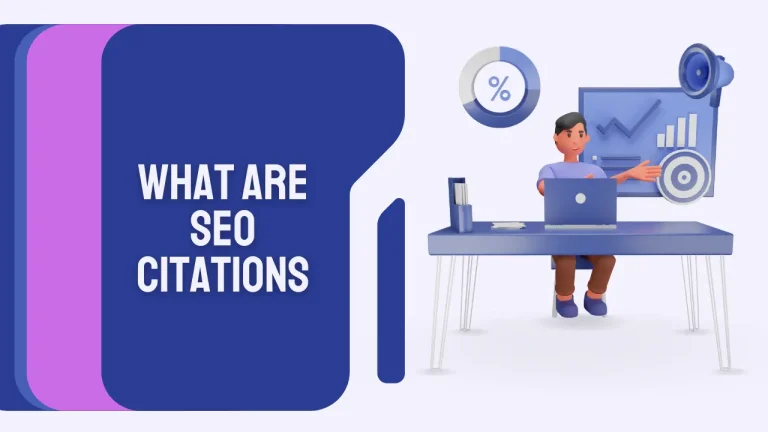What Do You Need To Balance When Doing Seo
When it comes to SEO, there are various factors that need to be balanced in order to achieve optimal results. To succeed in the ever-evolving world of search engine optimization, you must have a deep understanding of what it takes to rank well in search engine results pages (SERPs).
This article will provide you with valuable insights on the key elements that need to be considered and balanced when doing SEO.
First and foremost, content quality and relevance play a crucial role in attracting both search engines and users. Ensuring that your content is informative, engaging, and tailored to meet users’ needs is essential for success.
Additionally, website usability and user experience are equally important factors that cannot be overlooked. A well-designed website with easy navigation and fast loading speed can significantly enhance user satisfaction.
Technical optimization is another aspect that requires attention. Optimizing your website’s structure, meta tags, URLs, and mobile-friendliness can help search engines crawl and index your site effectively.
Moreover, off-page factors such as backlinks from authoritative websites can greatly impact your rankings. Building a strong backlink profile through strategic outreach efforts is vital for SEO success.
Lastly, monitoring and analysis are necessary for tracking the performance of your SEO efforts. Regularly monitoring keyword rankings, traffic sources, bounce rates, and other metrics allows you to make data-driven decisions and continuously improve your strategies.
Achieving effective SEO involves balancing multiple elements such as content quality, website usability, technical optimization, off-page factors like backlinks, as well as constant monitoring and analysis. By mastering these aspects of SEO while staying updated with industry trends and algorithm changes, you will be better equipped to drive organic traffic to your website consistently.
Key Takeaways
- Balancing various factors for optimal SEO results
- Monitoring and analyzing website performance using tools like Google Analytics
- Conducting thorough keyword research and optimization to improve visibility and rankings
- Implementing data-driven optimizations to improve website performance and achieve higher conversion rates
Content Quality and Relevance

When doing SEO, it’s crucial to balance content quality and relevance.
In order to optimize your website for search engines, you need to ensure that your content is of high quality and provides value to the readers. This includes creating informative and engaging articles, blog posts or product descriptions that are well-researched and written in a way that resonates with your target audience.
Additionally, it’s important to pay attention to the length of your content. While longer articles tend to perform better in search engine rankings, you should also focus on providing concise and relevant information.
Conducting thorough keyword research will help you identify the right keywords to include in your content for improved visibility. By striking a balance between content quality and relevance, you can create an effective SEO strategy that drives organic traffic to your website.
Now let’s move on to another important aspect of SEO: website usability and user experience.
Website Usability and User Experience

When it comes to website usability and user experience, there are a few key points you need to consider.
First, ensure easy navigation and clear site structure so that users can easily find what they’re looking for.
Second, optimize page loading speed to keep users engaged and prevent them from leaving due to slow-loading pages.
Lastly, make sure your website is mobile responsive so that it looks and functions well on different devices, as more and more people are accessing the internet through their smartphones.
By focusing on these aspects, you can enhance the overall user experience and improve your SEO efforts.
Ensure easy navigation and clear site structure
To create a user-friendly experience, make sure your website has a clear and organized structure that allows for easy navigation.
Improving accessibility and enhancing user engagement are crucial factors in achieving this goal. When users visit your site, they should be able to find the information they need quickly and effortlessly.
An intuitive menu system with clearly labeled categories and subcategories can help guide users through your website seamlessly. Additionally, incorporating search functionality can further enhance navigation by allowing users to directly search for specific content.
A well-structured site not only improves usability but also contributes to better search engine optimization (SEO), as search engines can easily crawl and index your pages.
Next, let’s discuss how you can optimize page loading speed and ensure mobile responsiveness without compromising user experience.
Optimize page loading speed and mobile responsiveness
Optimizing page loading speed and ensuring mobile responsiveness is crucial for creating a seamless user experience that leaves visitors with a swift and smooth browsing journey, allowing them to effortlessly access your website from any device.
Improving website accessibility and enhancing mobile user experience are essential aspects of SEO that require careful attention. A slow-loading website can frustrate users and lead to high bounce rates, negatively impacting your search engine rankings. By optimizing page loading speed, you not only improve user satisfaction but also increase the chances of higher conversion rates.
Additionally, mobile responsiveness is vital as more people are accessing websites through their smartphones. Having a responsive design ensures that your site looks great on all screen sizes and provides an optimal browsing experience.
Enhancing these factors contributes to better overall SEO performance by delivering an enjoyable user experience that keeps visitors engaged and encourages them to explore further.
Now let’s move on to the next section about technical optimization strategies.
Technical Optimization
In order to achieve effective SEO, you must strike a balance between various factors, including technical optimization. This aspect of SEO involves ensuring that your website is optimized for search engine crawlers and provides a seamless user experience.
To successfully optimize your website technically, you should consider the following:
- Keyword research: Conduct thorough keyword research to identify the most relevant and high-performing keywords for your website.
- On-page optimization: Apply these keywords strategically in your meta tags, headings, content, and URLs to improve your website’s visibility in search results.
- Page loading speed: Optimize your website’s loading speed by minimizing file sizes, leveraging browser caching, and optimizing images.
- Mobile responsiveness: Ensure that your website is mobile-friendly and responsive across different devices.
By addressing these technical optimization factors, you can enhance the overall performance of your website in search engine rankings.
Moving forward into off-page factors and backlinks…
Off-Page Factors and Backlinks
Enhancing your website’s off-page factors and building high-quality backlinks is crucial for achieving effective SEO. To improve your off-page optimization, focus on link building strategies that will help you build a strong online presence.
Seek out reputable websites and directories to obtain valuable backlinks that can drive traffic to your site. Additionally, optimize anchor text by using relevant keywords that accurately describe the content of the linked page. This not only helps search engines understand the context of your links but also improves user experience.
By carefully balancing these off-page factors and implementing effective link building strategies, you can increase your website’s visibility and authority in search engine rankings.
Now let’s transition into the subsequent section about monitoring and analysis to ensure ongoing success in your SEO efforts.
Monitoring and Analysis

To ensure the success of your SEO efforts, it’s crucial to regularly track and analyze your website’s performance. By doing so, you can identify areas that need improvement and make data-driven optimizations.
Utilize tools like Google Analytics to gain valuable insights into user behavior, traffic sources, and conversion rates. This will enable you to develop effective strategies for increasing organic search visibility and driving more targeted traffic to your site.
Regularly track and analyze website performance
Make sure you regularly keep an eye on how your website is performing so you can analyze its performance and make any necessary adjustments. This is crucial for effective SEO.
Here are three key things to consider when tracking and analyzing your website’s performance:
- Website Traffic Analysis: Monitor the number of visitors coming to your site, where they are coming from, and which pages they are visiting the most. This will help you understand what content is resonating with your audience and identify potential areas for improvement.
- Keyword Research Strategies: Continuously research and analyze keywords that are relevant to your business and industry. By understanding which keywords are driving traffic to your site, you can optimize your content accordingly and improve your organic search rankings.
- Conversion Rate Optimization: Track conversion rates for different actions on your website, such as purchases or newsletter sign-ups. Analyzing this data will allow you to identify any roadblocks in the user journey and optimize your website for better conversions.
To gain deeper insights into these metrics and make data-driven optimizations, use tools like Google Analytics. Understanding how users interact with your site will enable you to refine your SEO strategy further without wasting time or resources on ineffective tactics.
Use tools like Google Analytics for insights and data-driven optimizations
Using tools like Google Analytics allows you to uncover valuable insights and make data-driven optimizations that can skyrocket your website’s performance. With the ability to track various metrics, analyze user behavior, and interpret data, you gain a deeper understanding of how your website is performing and what improvements can be made.
One important aspect of using these tools is data interpretation. By analyzing the data collected through Google Analytics, you can identify trends, patterns, and areas for improvement. This helps you prioritize your efforts and make strategic decisions to optimize your website.
Another key benefit is conversion rate analysis. By tracking conversions and analyzing their sources, you can determine which marketing channels are most effective in driving conversions. This allows you to allocate resources accordingly and refine your marketing strategies for maximum impact.
Incorporating a 3 column and 5 row table in markdown format:
| Metric | Definition | Importance |
|---|---|---|
| Bounce Rate | Percentage of visitors who leave without exploring other pages | Indicates user engagement |
| Pageviews | Total number of pages viewed by visitors | Measures website popularity |
| Average Session Duration | Average time users spend on your site | Reflects user interest |
| Conversion Rate | Percentage of visitors who complete a desired action | Measures effectiveness of marketing efforts |
| Traffic Sources | Channels through which users arrive at your site | Helps identify successful marketing strategies |
By leveraging tools like Google Analytics and interpreting the data they provide, you can make informed decisions to improve your website’s performance and achieve higher conversion rates.
Frequently Asked Questions
Conclusion
When it comes to SEO, there are several factors that need to be balanced in order to achieve success.
It is crucial to focus on creating high-quality and relevant content that engages users and meets their needs.
Ensuring a seamless website usability and user experience is essential for keeping visitors on your site.
Technical optimization plays a significant role in improving search engine rankings and overall performance.
Lastly, building strong off-page factors through backlinks can greatly enhance your online presence.
By continuously monitoring and analyzing these elements, you can strategically optimize your SEO efforts for maximum impact.






